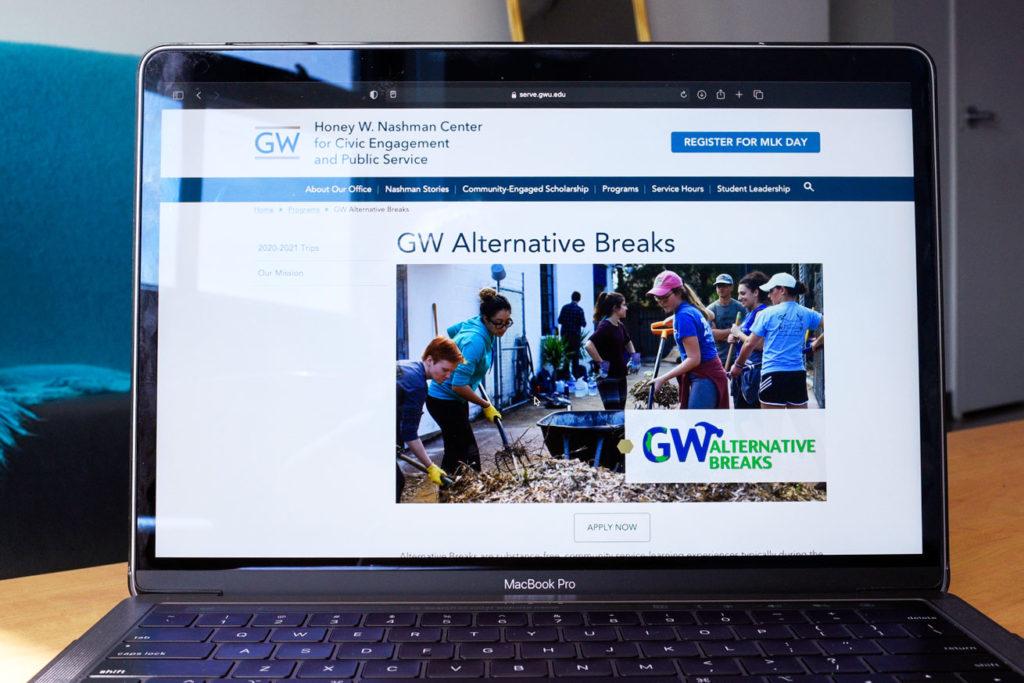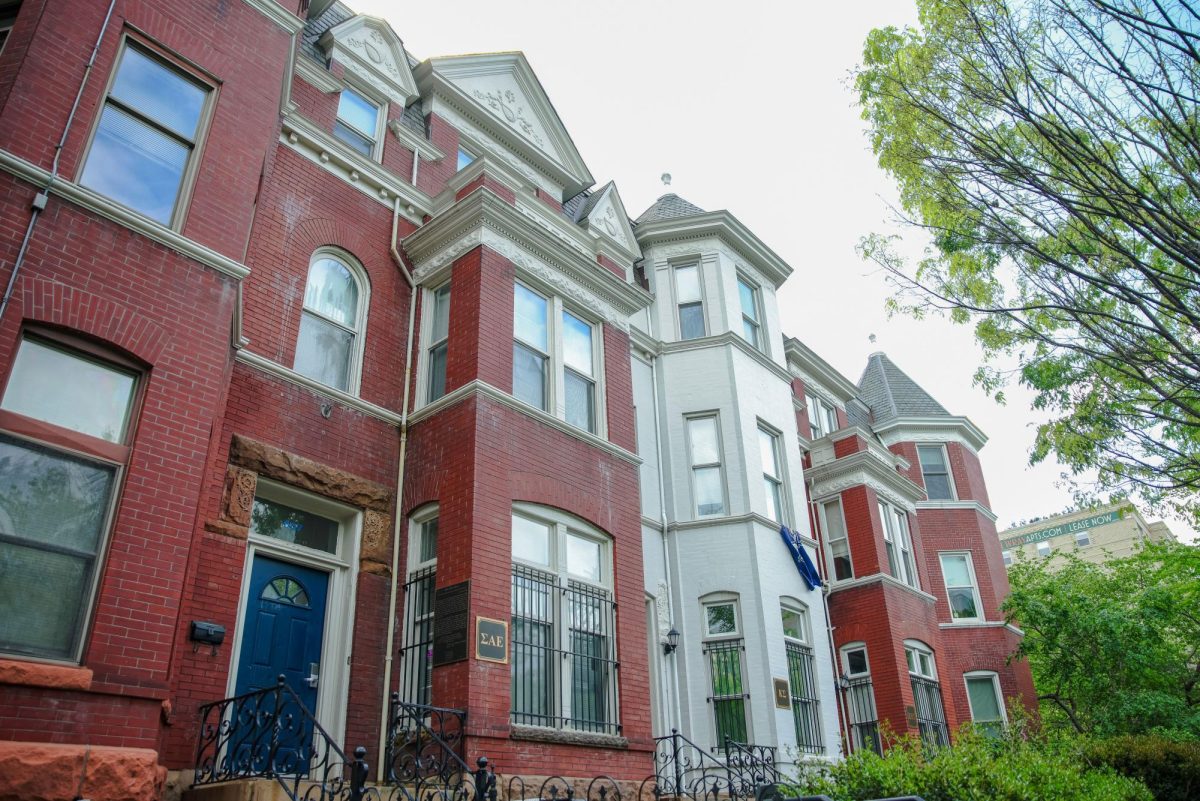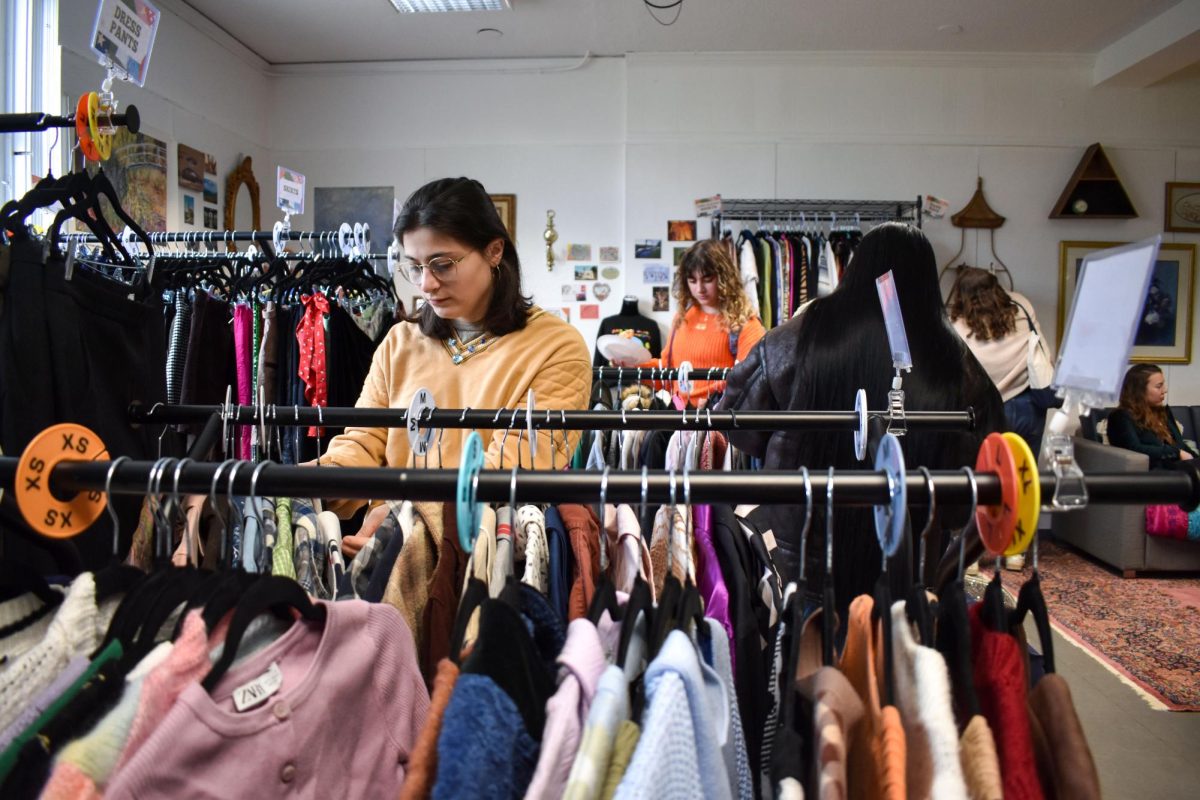A student-run service program revamped participants’ spring breaks this year through virtual service opportunities based on social and environmental issues.
The Nashman Center for Civic Engagement and Public Service’s Spring Alternative Breaks program, which is entirely student-led, hosted four virtual events focused on educating participants about issues like immigration, systematic racism and indigenous rights. Amy Cohen, the executive director of the Nashman Center, said Alternative Breaks partnered with leaders of various community advocacy organizations, like the American Immigration Council, to educate participants about each organization’s focus.
“The student-led program featured four virtual service experiences that gave students the opportunity to become active citizen leaders while building lasting connections with people from various communities through a mutually beneficial experience,” Cohen said in an email.
Alternative Breaks traditionally sponsors service-based trips during winter and spring breaks both nationally and internationally. In between trips, students attend discussions and workshops year-round related to the community they serve during the weeklong service project.
Cohen said participants did not need to pay to attend any of the events because they were not in person, unlike previous years. She said a total of 32 students participated in the virtual events, which included a speaker series centered on combating systemic inequality and oppression.
Cohen said GW’s Alternative Breaks partnered with other Alternative Break chapters at American, Howard and George Mason universities and the University of Maryland this year to form a DMV Alternative Breaks Coalition. She said leaders of each chapter discussed the “best practices” to make each program a “success” but hosted their events separately.
“This year, education has been more important than ever,” Cohen said. “Because we were unable to serve in person, learning about, and with, community organizations has been crucial for students to fully understand their role in the D.C., national and global community.”
Senior Will Hoadley-Brill, the executive chair of Alternative Breaks, said the program focused on four service issues – community empowerment and systemic inequality, indigenous rights and education, disaster relief and sustainability and immigration and border relations. He said the topics, chosen by each student leader, maintain long-term “mutually beneficial partnerships” with various local community members.
He said his role as chair was to streamline communication both with the Nashman Center’s staff director and Alternative Breaks chapters inside and outside the DMV to make the program run smoothly. Participants attended educational meetings every other week last fall and weekly meetings this spring to discuss their specific issue focus and how their partners engage in the community, he said.
Hoadley-Brill said leaders included asynchronous elements to combat “Zoom fatigue and scheduling challenges” as many students attend events from different time zones. He said the switch to online events helped facilitate collaboration between community organizations and student leaders to further the program’s mission to “inspire active citizenship.”
“The virtual format allowed us to increase accessibility to a larger population of students as we were able to make our program free of charge for leaders and participants,” Hoadley-Brill said in an email. “Additionally, the online format has allowed us to cultivate spaces for deep learning and reflection with smaller group sizes.”
Senior Caroline Frenzel, a trip leader for Alternative Breaks, said her service project focused on educating students about immigration and border relations in collaboration with advocacy groups like the American Immigration Council. She said holding events online allowed her to collaborate with nonprofit organizations to host the Zoom events about Latin American border communities and advocating for immigrant communities.
Frenzel said participants attended virtual “cultural exchange” classes on bracelet-making and medicinal plants with the Tandana Foundation, which is based in Ecuador, to learn about the culture of Latin America. She said participants also hosted a fundraiser on the Alternative Breaks Instagram and Facebook pages, which raised about $340 for the foundation’s secondary education scholarships.
“For immigration and border relations, there aren’t a lot of online service opportunities, especially because not all of our participants speak Spanish,” Frenzel said. “Most of the service opportunities online directly related to immigration and immigrant communities were translation jobs. So instead we opted to do more cultural exchange and fundraising for certain initiatives in Latin America and Central America.”
Frenzel said she held approximately 20 immigration and border relation virtual events over the spring semester, with about five to 10 student participants at each.
“Especially this year, we were hoping to get freshman students who were new to the GW community entering into it in a virtual strange setting,” Frenzel said. “We wanted to be able to reach those people even though they have never been on campus and been able to interact with Alternative Breaks in person.”
Senior Alyson Campbell, a trip leader for Alternative Breaks, said she led “interactive” virtual workshops in collaboration with nonprofit groups Plentitude and Green Communities to teach participants about sustainability. She said Plentitude, based in Puerto Rico, shipped fruits and vegetables to participants to participate in a virtual cooking class with the organization’s leaders.
Campbell added that Green Communities, based in Costa Rica, sent coffee from their farms for participants to taste-test and learn about sustainability in farming. She said keeping the programming “immersive” helped overcome some of the challenges of being online by keeping participants engaged in learning.
“I wanted [participants] to learn about sustainability, especially in these contexts that aren’t Washington, D.C.,” Campbell said. “Costa Rica and Puerto Rico have very different views on sustainability, but they also have very similar views on sustainability. We’re seeing how what they’re doing in Puerto Rico and what they’re doing in Costa Rica can be taken back here for us to do on our own.”







